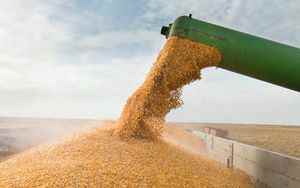(Finance) – It will not take months, but years, to calm the escalation of prices of wheat and other agricultural products, triggered by the invasion of Russia in Ukraine and the sanctions imposed by the West on Moscow. This was revealed by a study by Samuel Tilleray, an analyst at S&P Global Ratingsaccording to which the increase in prices and the reduction of supplies it will last “until 2024, perhaps beyond“.
According to the agency, “the lack of fertilizers, export controls, trade disruptions and rising fuel costs will exert upward pressure on the cost of raw materials”.
It must be borne in mind that Ukraine and Russia they are among the top three world exporters of wheat, corn, seeds and sunflower oil and together represent the 12% of exchangeswhile Russia and Belarus were the first and sixth largest fertilizer exporters globally in 2020.
The analysis also shows that i Most affected countries from the shortage of agricultural raw materials are those with medium and low income ofCentral Asiaof the Middle EastofAfrica he was born in Caucasus. In particular, the most fragile countries in terms of imports compared to GDP were analyzed and it emerged that Caucasus Tajikistan, Uzbekistan and Armenia they are “particularly exposed” to the almost total dependence on Russia, while Morocco, Lebanon, Egypt and Jordan they are highly dependent on Ukraine and are therefore exposed to the disruption of ports and processing activities due to the war
The food price shock it will affect GDP growth, fiscal policy and social stability, and could also lead to a review of the ratings of some emerging economies, based on the answers given by individual countries and international organizations. “Although many of the government bonds most exposed to this risk already have very low credit ratings, the economic and political repercussions of the food shock could contribute to the rating downgrades“explains Tilleray.
More specifically, the potential impact on ratings will depend, among other things, on the magnitude and severity of the food shock, on the ability of governments to minimize social and economic costs and on international aid.
